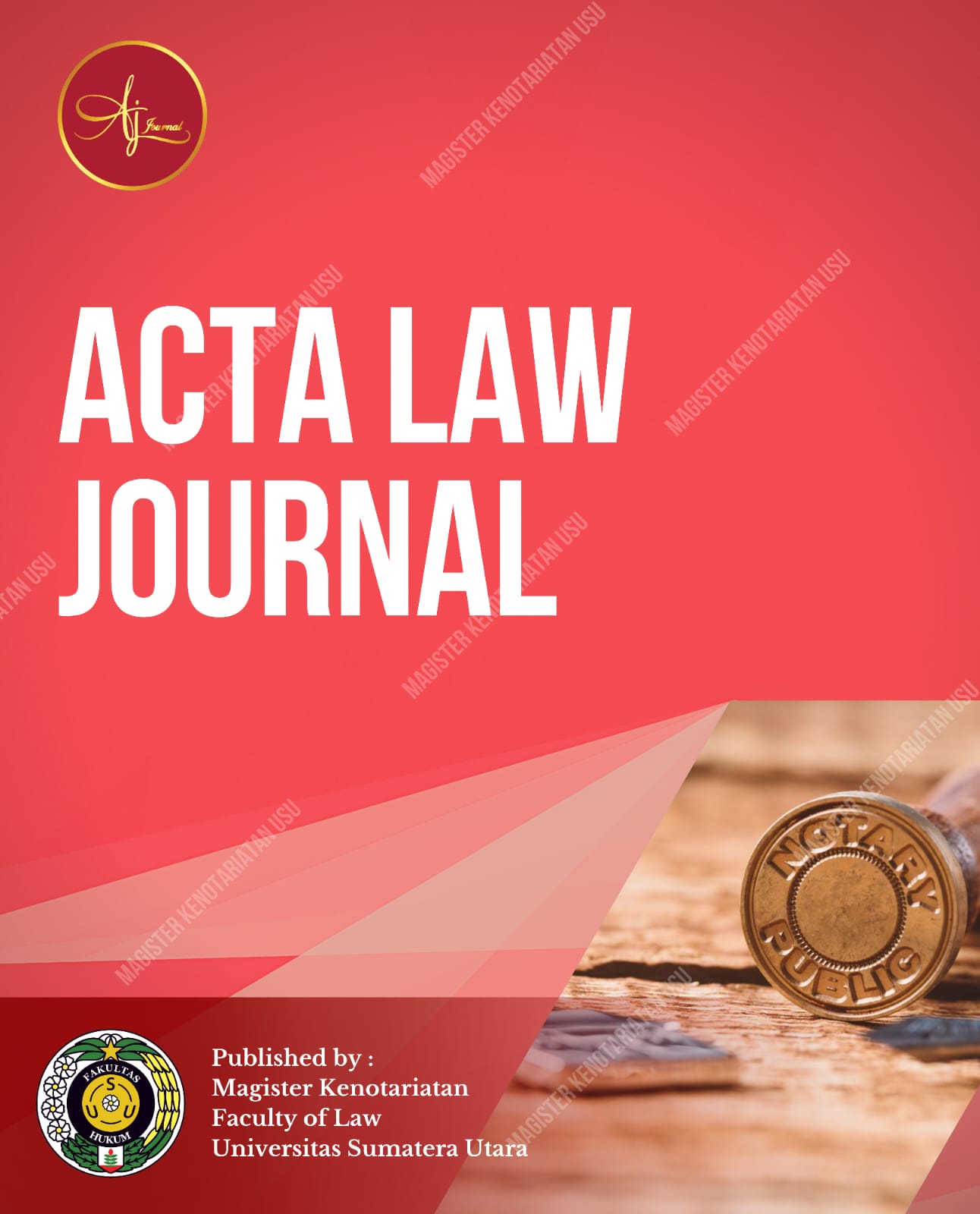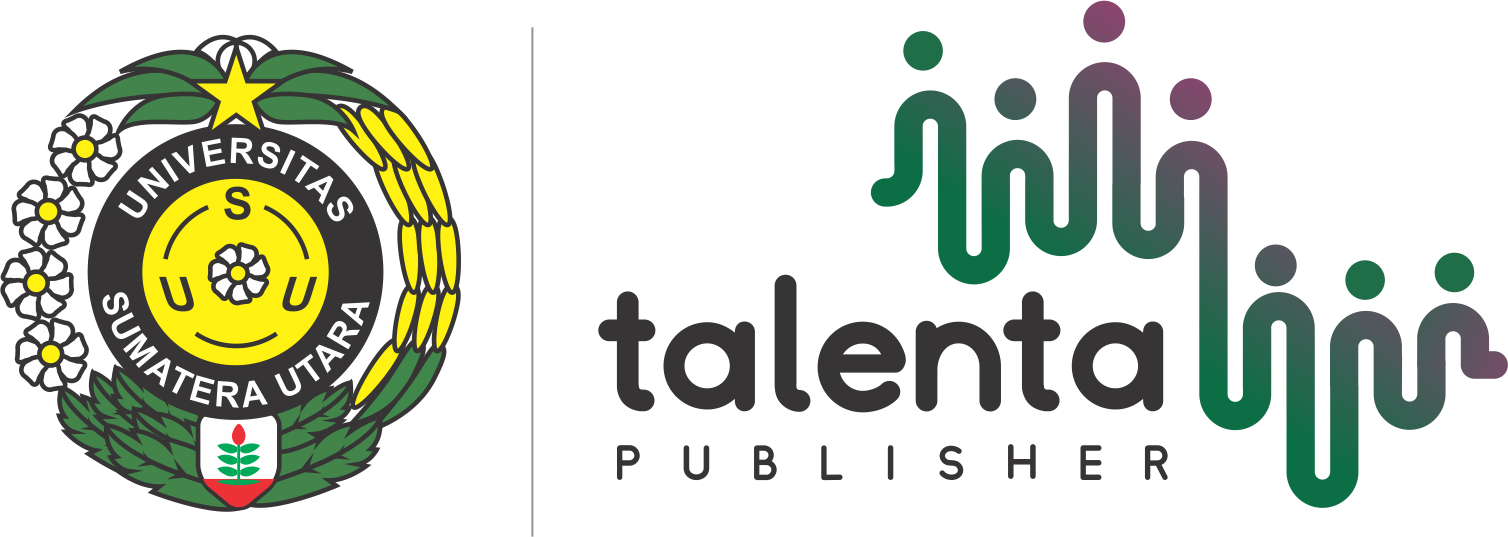The Effect Of Technological Disruption On The ASEAN Economic Community: An Regulatory Analysis Of Legal Education In Indonesia
DOI:
https://doi.org/10.32734/alj.v1i1.9897Keywords:
ASEAN Economic Community, Indonesian Legal Education, Technology DisruptionAbstract
The implementation of the provisions of the ASEAN Economic Community (MEA) and the influence of Artificial Intelligence (AI) in analyzing legal issues are essential points that must be considered by legal education in Indonesia. Soekarno thought that education is the main priority to be implemented because it is a determining factor for the development of humanity. There is no way to fix the downturn of the people other than to form an education rooted in humanity's values, principles, and goals. This article discusses the relevance of Soekarno's thoughts regarding the importance of education in facing the rapid development of society and how educators and the legal profession should respond to these developments. AI can not just have the idea to create the latest technological sophistication alone. However, it is necessary to consider its usefulness in the future regarding the concept of the AI system. Concerns arise when people may believe whether AI will reflect human values?
Downloads
References
Bünz, Benedikt. “Zether: Towards Privacy in a Smart Contract World.†Lecture Notes in Computer Science (Including Subseries Lecture Notes in Artificial Intelligence and Lecture Notes in Bioinformatics), n.d., 423–43. https://doi.org/10.1007/978-3-030-51280-4_23/COVER.
Finch, Sarah. “5 Technological Disruptions In The Legal Sector,†2022. https://disruptionhub.com/5-technological-disruptions-in-the-legal-sector/.
Giancaspro, Mark. “Is a ‘Smart Contract’ Really a Smart Idea? Insights from a Legal Perspective.†Computer Law & Security Review 33, no. 6 (December 1, 2022): 825–35. https://doi.org/10.1016/J.CLSR.2017.05.007.
Hikam. “Globalisasi Dan Pemetaan Kekuatan Strategis Pertahanan Maritim Indonesia Dalam Menghadapi Ancaman Transnasional: Berdasarkan Analisis Model Element Of National Power.†Jurnal Pertahanan & Bela Negara 5, no. 2 (2018): 53–70.
Kahar, Mu’mina Kurniawati S J, Nina Zulida Situmorang, and Siti Urbayatun. “Hubungan Antara Regulasi Emosi Dengan Perilaku Agresif Pada Siswa SMA Di Yogyakarta.†Psyche 165 Journal, February 2, 2022, 7–12.
Lawgeex. “AI vs. Lawyer: The Ultimate Showdown.†Accessed October 28, 2020. https://www.lawgeex.com/AIvsLawyer/.
Liu, Sida. “The Legal Profession as a Social Process: A Theory on Lawyers and Globalization.†Law & Social Inquiry 38, no. 3 (December 27, 2013): 670–93.
Nurisman, Eko. “Analisis Penegakan Hukum Pidana Kejahatan Klitih Dan Anarkisme Jalan Oleh Remaja.†Jurnal Pendidikan Kewarganegaraan Undiksha 10, no. 1 (February 1, 2022): 415–28.
Putro, Widodo Dwi. “Disrupsi Dan Masa Depan Profesi Hukum.†Mimbar Hukum - Fakultas Hukum Universitas Gadjah Mada 32, no. 1 (February 15, 2020): 19–29. https://doi.org/10.22146/JMH.42928.
Re, Edward D. “The Causes of Popular Dissatisfaction with the Legal Profession.†St. John’s Law Review 68 (1994). https://heinonline.org/HOL/Page?handle=hein.journals/stjohn68&id=97&div=&collection=.
Rhyne, Charles S. “The Computer Will Speed a Law-Full World.†American Bar Association Journal 53, no. 5 (1967): 420–24.
“Sekolah Daring, Keluarga, Dan Pemicu Klitih Di Jogja - JPNN.Com Jogja.†Accessed August 16, 2022. https://jogja.jpnn.com/jogja-terkini/2356/sekolah-daring-keluarga-dan-pemicu-klitih-di-jogja.
Sita, Dewi. “Bonus Demografi Di Indonesia: Suatu Anugerah Atau Petaka.†Journal of Information System, Applied, Management, Accounting and Research 2, no. 3 (2018): 23.
Smkn, Heri Widodo, and Wonosari Caruban Madiun. “Potret Pendidikan Di Indonesia Dan Kesiapannya Dalam Menghadapi Masyarakat Ekonomi Asia (MEA).†Cendekia: Jurnal Kependidikan Dan Kemasyarakatan 13, no. 2 (April 4, 2016): 293–308. https://doi.org/10.21154/CENDEKIA.V13I2.250.
“Soekarno Dan Pendidikan Karakter Bangsa,†n.d. https://kumparan.com/faozan-amar/soekarno-dan-pendidikan-karakter-bangsa-1tZRiEori6Y.
Susskind, Daniel, and Richard E. Susskind. The Future of the Professions: How Technology Will Transform the Work of Human Experts. Oxford University Press, 2018. https://books.google.co.id/books?hl=en&lr=&id=iYpmCgAAQBAJ&oi=fnd&pg=PP1&dq=Richard+Susskind,+et+al.,+2015,+The+Future+of+The+Professions:+How+Technology+&ots=utrBcBBctX&sig=AYKnQVL087_2RAy56Kn0wNagrkI&redir_esc=y#v=onepage&q=Richard Susskind%2C et al.%2C.
Syambudi, Irwan. “Pelajar Di Jogja Jadi Pelaku Klitih, Salah Keluarga Atau Sekolah?†Accessed August 16, 2022. https://tirto.id/pelajar-di-jogja-jadi-pelaku-klitih-salah-keluarga-atau-sekolah-exgu.
Wignjosoebroto, Soetandyo. Konsep Hukum, Tipe Kajian Dan Metode Penelitiannya. Makassar, 1994.
Wolfgang, Ertel. “Introduction to Artificial Intelligence.†Springler, 2018.
Zhang, Yuanyu. “Smart Contract-Based Access Control for the Internet of Things.†IEEE Internet of Things Journal 6, no. 2 (April 1, 2019): 1594–1601. https://doi.org/10.1109/JIOT.2018.2847705.
Zittrain, Jonathan. “Law and TechnologyThe End of the Generative Internet.†Communications of the ACM 52, no. 1 (January 2009): 18–20.
Downloads
Published
Issue
Section
License
Copyright (c) 2022 Kukuh Tejomurti; Sapto Hermawan

This work is licensed under a Creative Commons Attribution-ShareAlike 4.0 International License.











